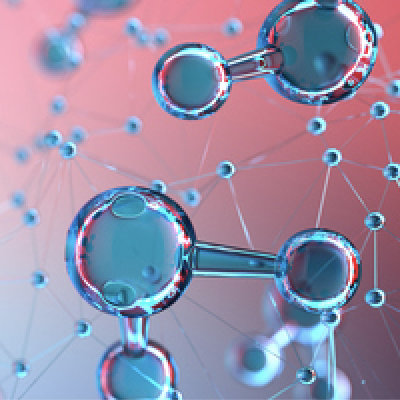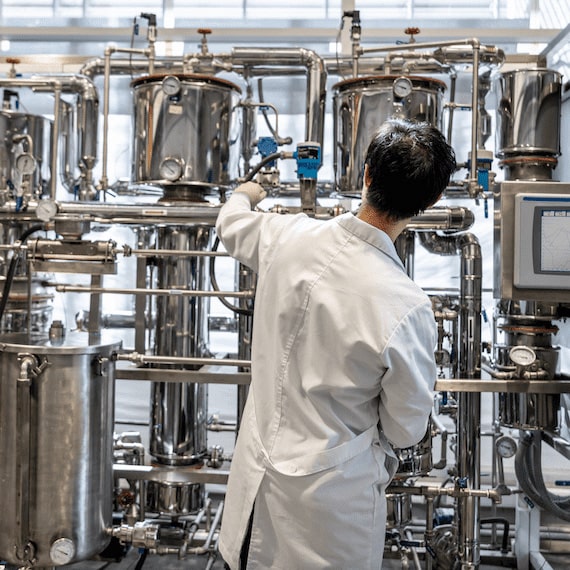Let’s Decarbonize The Future
Let’s decarbonize the future while ensuring the products we make are compatible with the demand-driven supply chain of today’s world.
Synata Bio uses a single-step, feedstock-flexible fermentation process to convert synthesis gas from low-cost feedstocks into high-value products in the most economical and scalable manner.
Synata Bio’s Technology is the Most Efficient & Scalable Pathway for the Conversion of Synthesis Gas to Ethanol.
We believe ethanol is the ideal building block to replace fossil-based materials while preserving existing capital in the petrochemical industry and without disrupting existing supply chains.
Synata Bio has a carbon transformation platform that leverages industrial biotechnology to produce sustainable commodities from low value carbon and renewable energy.
The Least Cost Producer of Sustainable Commodities at Scale
When combined with commercially available ethanol dehydration, Synata Bio is positioned to be the world’s lowest cost producer of decarbonized ethylene.

The Chemical Industry
- Big Growth
- Big Emissions
- Big Infrastructure
- Big Dependencies
- Big Energy Demand
Big Growth
- Plastics are the fastest growing category of physical materials
- Projected to grow at 4.1% annually through 2030 and 2.4% thereafter (IHS)
Big Emissions
- Plastics account for around 10% of industrial greenhouse gas emissions
- This relative proportion is only expected to grow as other sectors decarbonize while demand for plastics grows
Big Infrastructure
- The chemical sector exceeds $4 trillion in revenue annually
- On average the installed capital is 1.4X revenue, implying >$6 trillion in existing CAPEX
- Much of that infrastructure is fairly young relative to expected useful life
Big Dependencies
- Just a handful of molecules provide the backbone of the modern chemical industry
- Upstream and downstream supply chains are highly integrated
- Electrification of the power and transportation sectors will impact availability of upstream supply of feedstock
- Downstream derivatives depend on today’s chemistry
Big Energy Demand
- Today the low-cost routes to these molecules come from high temperature cracking of petroleum and natural gas
- Today’s molecules have high proportions of intrinsic fossil carbon
- These processes require extreme amounts of heat and pressure currently supplied via fossil fuel
The BIG Solution:
Green Syngas
Renewable alcohols will replace fossil-based carbon in the chemicals value chain because they:
- Provide a scalable platform to decarbonize the entire value chain.
- Are the least disruptive decarbonization pathway – preserve existing plants and processes.
- Create a large market for waste CO2, facilitating CCU across all industrial sectors.
Green syngas uses captured waste CO2 (converted to CO through means of a catalyst or electrolyzer) and Hydrogen produced via renewable electricity (electrolyzer).
Why Green Syngas?
The cost and scale of sugar fermentation is limited by land requirements and food chain diversion issues; while the scale of biomass production is limited by supply constraints and land requirements.
On the other hand, green syngas feedstock is virtually unlimited, ranging from biomass waste feedstocks including plastic waste, food waste, municipal waste, agricultural waste, and more.
This leads to scalable low-cost supply. Green syngas also redeploys waste CO2 – making it carbon negative.
The Best Bugs From Nature
These are not genetically modified organisms. Our unique and proprietary microorganisms are harvested from nature and tuned for syngas.
Our bugs provide the highest selectivity, conversion rates, and yields in the industry, while remaining stable and robust for thousands of hours.
The Most Efficient Bioreactors
Our patented bioreactors deliver unparalleled mass transfer performance resulting in the highest single pass conversion rates available.
Synata Bio’s high throughput design is non-pressurized and has no moving parts, making it extremely reliable. With our ability to build at large scale, we deliver meaningful CAPEX savings and superior process economics.


